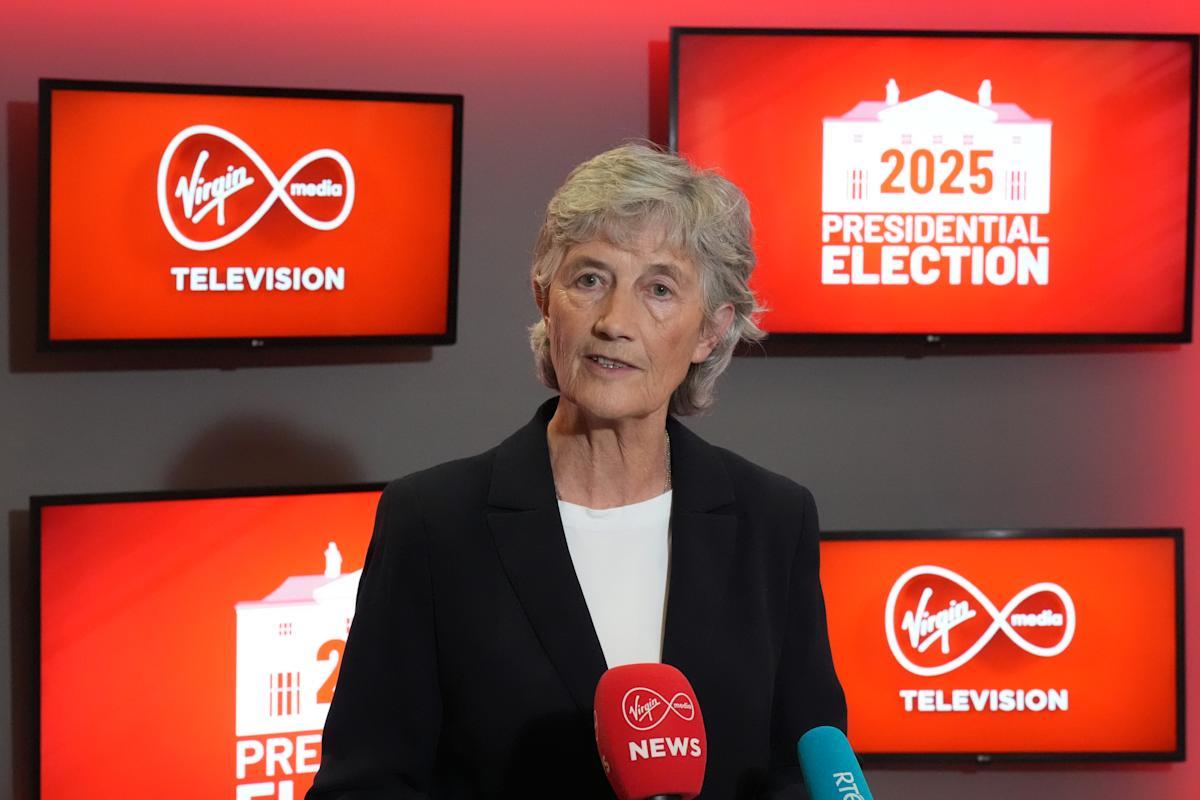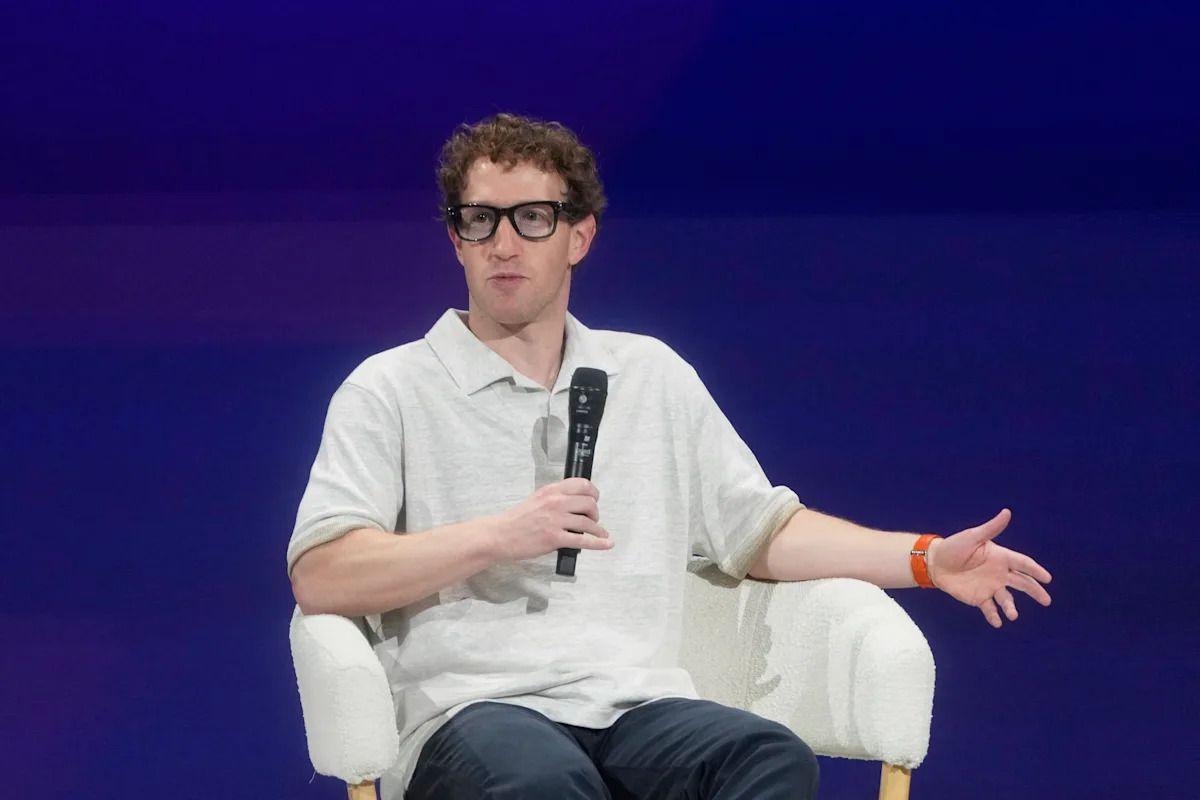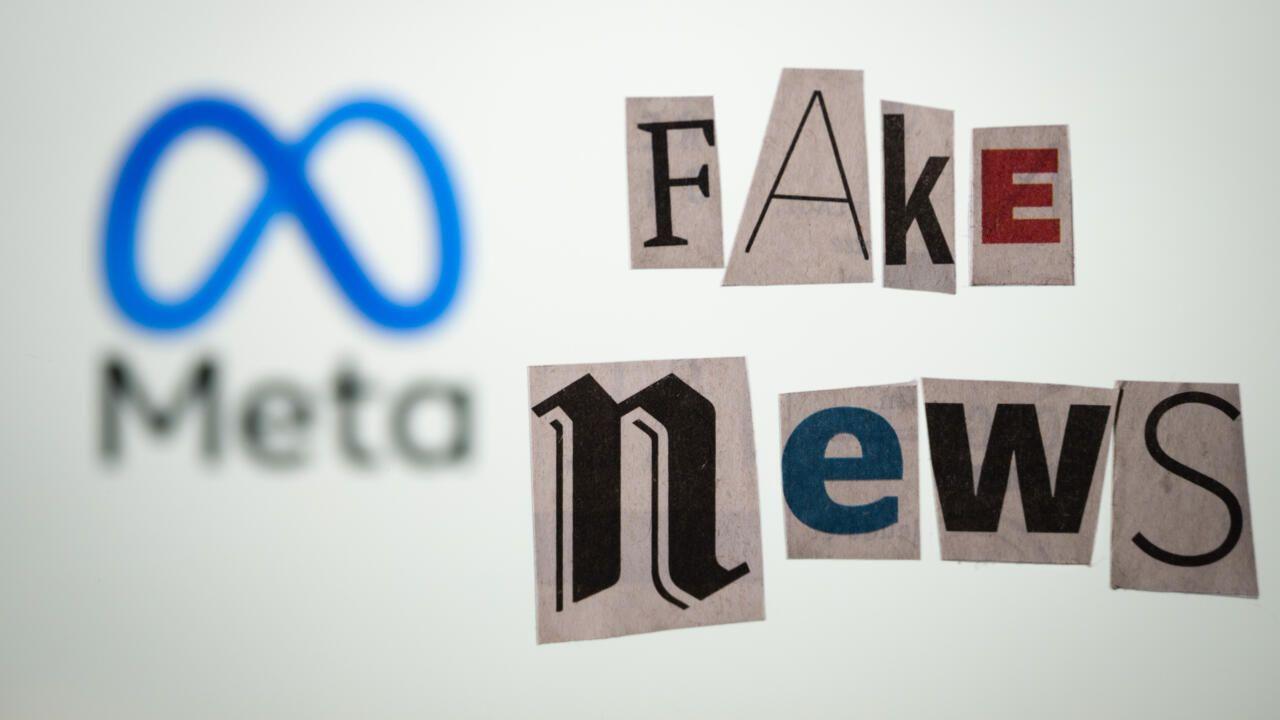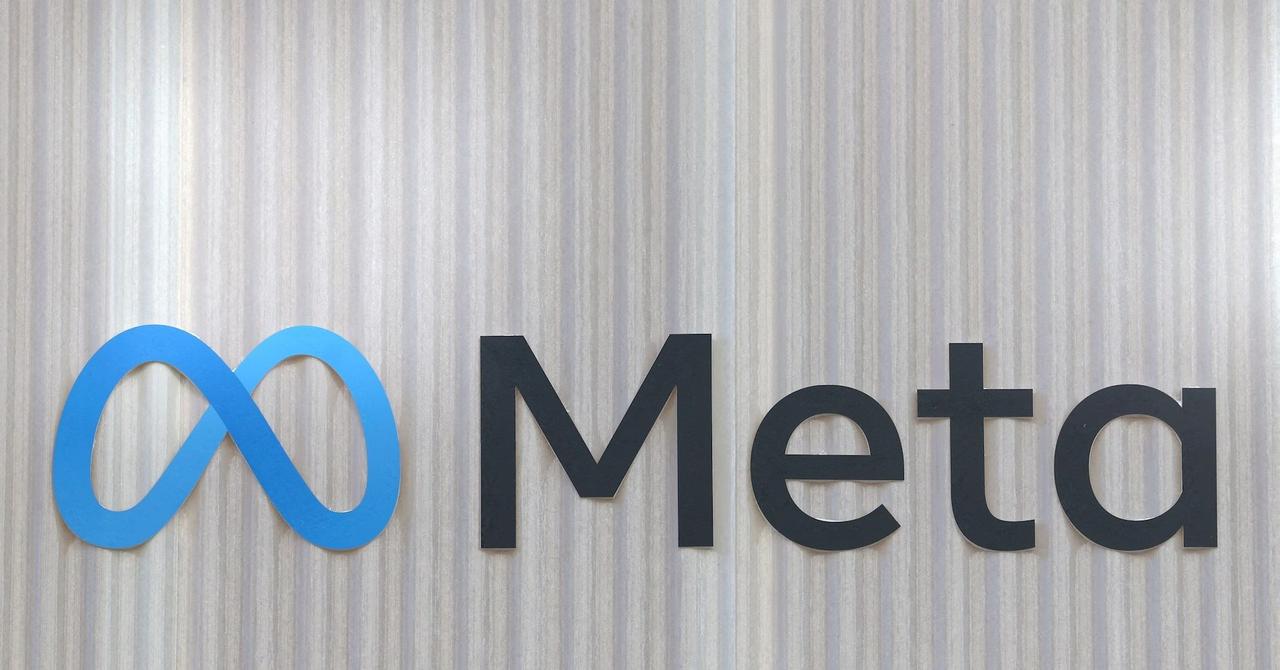AI Deepfake Video Disrupts Irish Presidential Election on Meta's Platform
2 Sources
2 Sources
[1]
Meta removes AI deepfake video of Irish presidential candidate
Meta has removed a deepfake AI video of Irish presidential candidate Catherine Connolly, which featured a false depiction of the politician saying that she's withdrawing from the election. According to The Irish Times, the AI-generated video was shared nearly 30,000 times on Facebook just days before Ireland's election on October 24 prior to it being removed from the website. Connolly called the video "a disgraceful attempt to mislead voters and undermine [Ireland's] democracy" and assured voters that she was "absolutely still a candidate for President of Ireland." The video was posted by an account which had named itself RTÉ News AI, which is not affiliated with the actual Irish public service broadcaster Raidió Teilifís Éireann. It copied the likenesses not just of Connolly, but also of legitimate RTÉ journalist Sharon Ní Bheoláin and correspondent Paul Cunningham. "It is with great regret that I announce the withdrawal of my candidacy and the ending of my campaign," the AI version of Connolly said in the fake video. Ní Bheoláin was shown reporting about the announcement and confirming the candidate's withdrawal from the race. The AI version of Cunningham then announced that the election was cancelled and will no longer take place, with Connolly's opponent Heather Humphreys automatically winning. Connolly, an independent candidate, is leading the latest polls with 44 points. Meta removed the RTÉ News AI account completely after being contacted by the Irish Independent. The company told The Irish Times that it removed the video and account for violating its community standards, particularly its policy prohibiting content that impersonates or falsely represents people. Irish media regulator Coimisiún na Meán said it was aware of the video and had asked Meta about the immediate measures it took in response to the incident. Meta has been struggling to keep deepfake and maliciously edited videos featuring celebrities and politicians under control for years now. The company's Oversight Board warned it earlier this year that it wasn't doing enough to enforce its own rules and urged it to train content reviewers on "indicators" of AI-manipulated content.
[2]
Meta Allows Deepfake That Irish Presidential Election Is Canceled to Go Super Viral
Ireland is just days away from electing a new president -- a mostly ceremonial role, though the office does carry constitutional responsibilities like appointing the Taoiseach, or prime minister, and referring legislation to the courts, granting the post real authority. This year, independent progressive Catherine Connolly has surged ahead in the polls, commanding a comfortable lead over her sole rival, the center-right Heather Humphreys. That makes it all the more jarring that, just days before the vote, a video started making the rounds of Connolly telling supporters she was dropping out of the race, automatically granting Humphreys the presidency. There's just one small wrinkle: Connolly never actually withdrew. It was the latest case of a hoax perpetuated by a deepfake, meaning an AI-generated recording that misrepresents real people to spread disinformation or sow other types of chaos. It all started on Meta's Facebook, where a lookalike account called "RTÉ News AI," after Ireland's public service broadcaster, posted the 40 second clip, which was allowed to stay up for 12 hours. During that time, it garnered 30,000 views and was shared hundreds of times before the platform finally scrubbed it, according to The Irish Times. While some deepfakes are pretty easy to spot if you know what to look for, this one was slick. It opens with a news desk reporter for RTÉ announcing that "Catherine Connolly has confirmed her withdrawal from the presidential race." In typical news broadcast fashion, it then cuts to tightly edited, synthesized footage of the politician, plastered with RTÉ chyrons to look like a real broadcast. Arguably the biggest tell comes after the faux-Connolly announces her withdrawal, when characteristically un-Irish voices from the crowd holler "Catherine, no!" The clip then flashes back to yet another reporter, who informers the viewer that, "simply put, Friday's election is now cancelled. It will no longer take place as previously planned. But as for Heather Humphreys, she will become the winner automatically and will be appointed tomorrow." A spokesperson for Coimisiún na Meán, Ireland's media censor, said the agency had "contacted the platform concerned to understand the immediate measures they have taken in response to this incident, and have reminded the platform of their obligations under the EU Digital Services Act relating to protecting the integrity of elections." Ireland has an odd history with AI hoaxes. Last year, hundreds gathered in the streets of Dublin to await a Halloween parade that would never come. The event had been dreamt up by a website based out of Pakistan, which used ChatGPT to exploit Google's SEO system. Meta, for its part, has been the epicenter of more than a few geopolitical scandals. There was the infamous Cambridge Analytica affair, in which 50 million Facebook profiles were scraped to build software in order to influence American voters in the 2016 elections. Lesser known was the company's role in the genocide of Rohingya Muslims in Myanmar, in which viral misinformation spread on Facebook was directly responsible for inciting an explosion in political violence. The Irish presidential election might be small potatoes in comparison, but it's a glaring signal that Facebook and its parent company Meta are still incredibly vulnerable to this kind of malicious interference.
Share
Share
Copy Link
A viral AI-generated deepfake video falsely depicting Irish presidential candidate Catherine Connolly withdrawing from the race sparked controversy and raised concerns about election integrity on social media platforms.

AI Deepfake Disrupts Irish Presidential Race
In a concerning development just days before Ireland's presidential election, an AI-generated deepfake video falsely depicting candidate Catherine Connolly withdrawing from the race has caused significant disruption and raised alarms about the integrity of the electoral process
1
2
.The Deceptive Video
The deepfake video, which appeared on Meta's Facebook platform, featured a convincing imitation of Connolly announcing her withdrawal from the presidential race. The AI-generated content also included fabricated footage of RTÉ news reporters discussing the false announcement and even claiming that the election had been canceled
1
.Viral Spread and Delayed Response
The video was posted by an account named 'RTÉ News AI,' misleadingly suggesting an affiliation with Ireland's public service broadcaster. It rapidly gained traction, amassing nearly 30,000 views and hundreds of shares within 12 hours before Meta finally removed it
2
.Related Stories
Candidate and Regulator Responses
Catherine Connolly, who is leading in recent polls, strongly denounced the video as 'a disgraceful attempt to mislead voters and undermine [Ireland's] democracy.' She reassured voters that she remained a candidate in the upcoming election
1
.Ireland's media regulator, Coimisiún na Meán, has contacted Meta to understand the measures taken in response to this incident and reminded the platform of its obligations under the EU Digital Services Act regarding election integrity
2
.Broader Implications for AI and Social Media
This incident highlights the ongoing challenges faced by social media platforms in controlling the spread of AI-manipulated content. Meta's Oversight Board had previously warned that the company was not doing enough to enforce its own rules on such content
1
.The ease with which this deepfake video went viral underscores the potential for AI technology to be misused for political manipulation and disinformation campaigns. It raises critical questions about the readiness of social media platforms to combat such threats, especially during sensitive periods like elections
2
.As AI technology continues to advance, the incident serves as a stark reminder of the need for improved detection methods, stricter content moderation policies, and increased public awareness about the potential for AI-generated misinformation in the digital age.
References
Summarized by
Navi
Related Stories
Meta Reports AI-Generated Content Constituted Less Than 1% of Election Misinformation on Its Platforms
03 Dec 2024•Technology

Meta's Oversight Board Criticizes Inadequate Response to Celebrity Deepfake Scams
06 Jun 2025•Technology

Deepfake Political Ads Surge on Meta Platforms, Raising Scam Concerns
02 Oct 2025•Technology

Recent Highlights
1
Pentagon threatens to cut Anthropic's $200M contract over AI safety restrictions in military ops
Policy and Regulation

2
ByteDance's Seedance 2.0 AI video generator triggers copyright infringement battle with Hollywood
Policy and Regulation

3
OpenAI closes in on $100 billion funding round with $850 billion valuation as spending plans shift
Business and Economy





